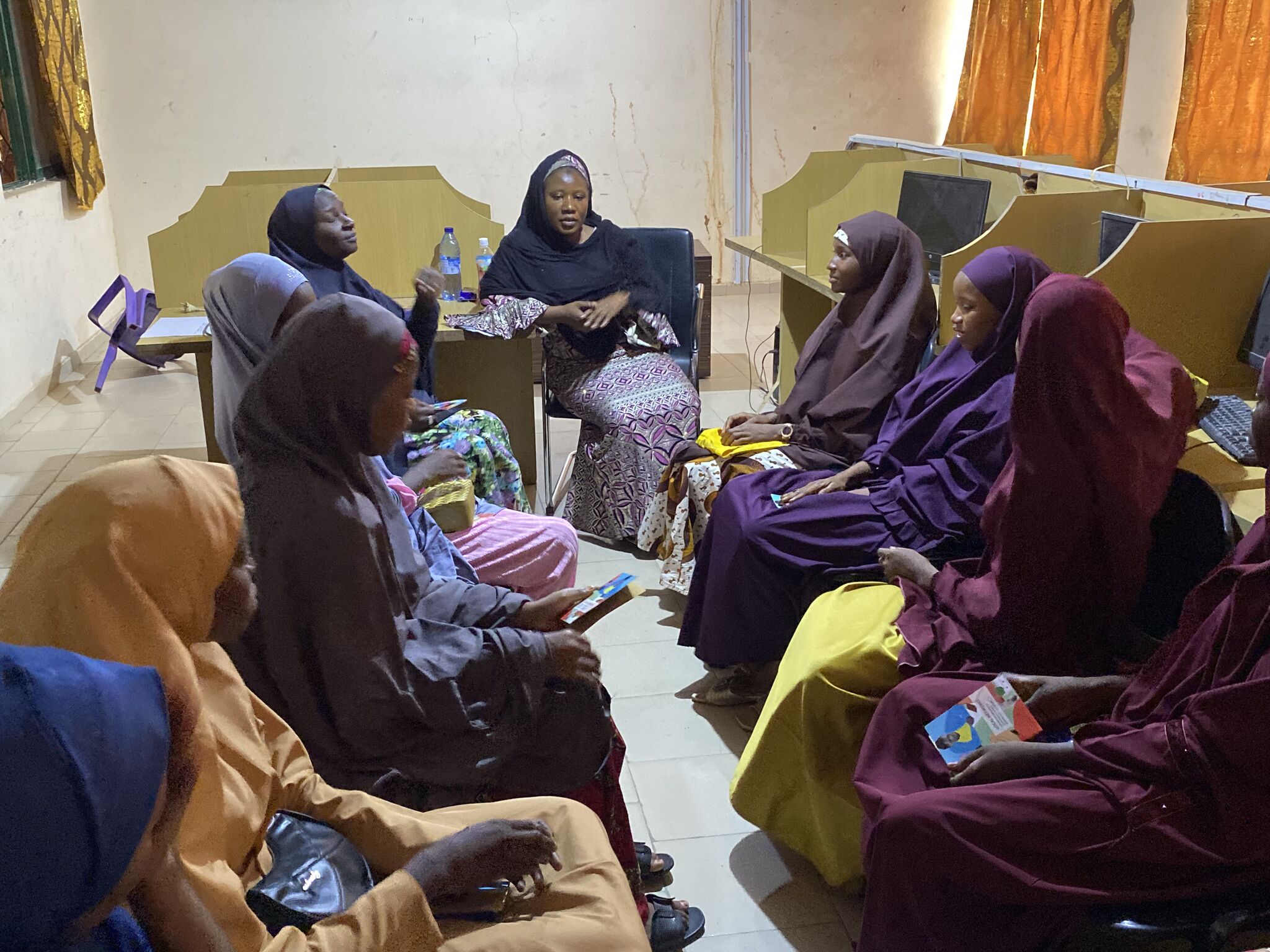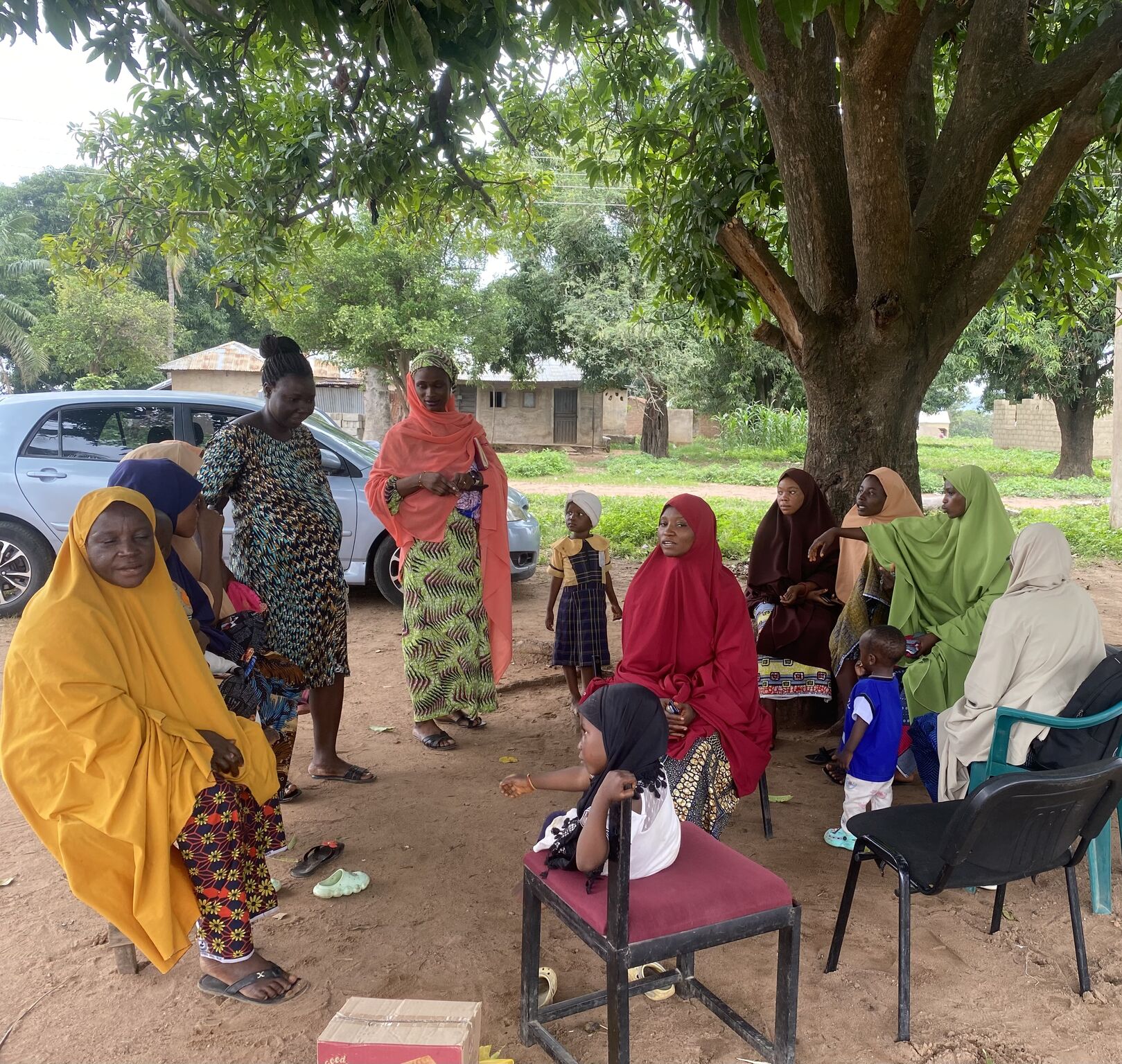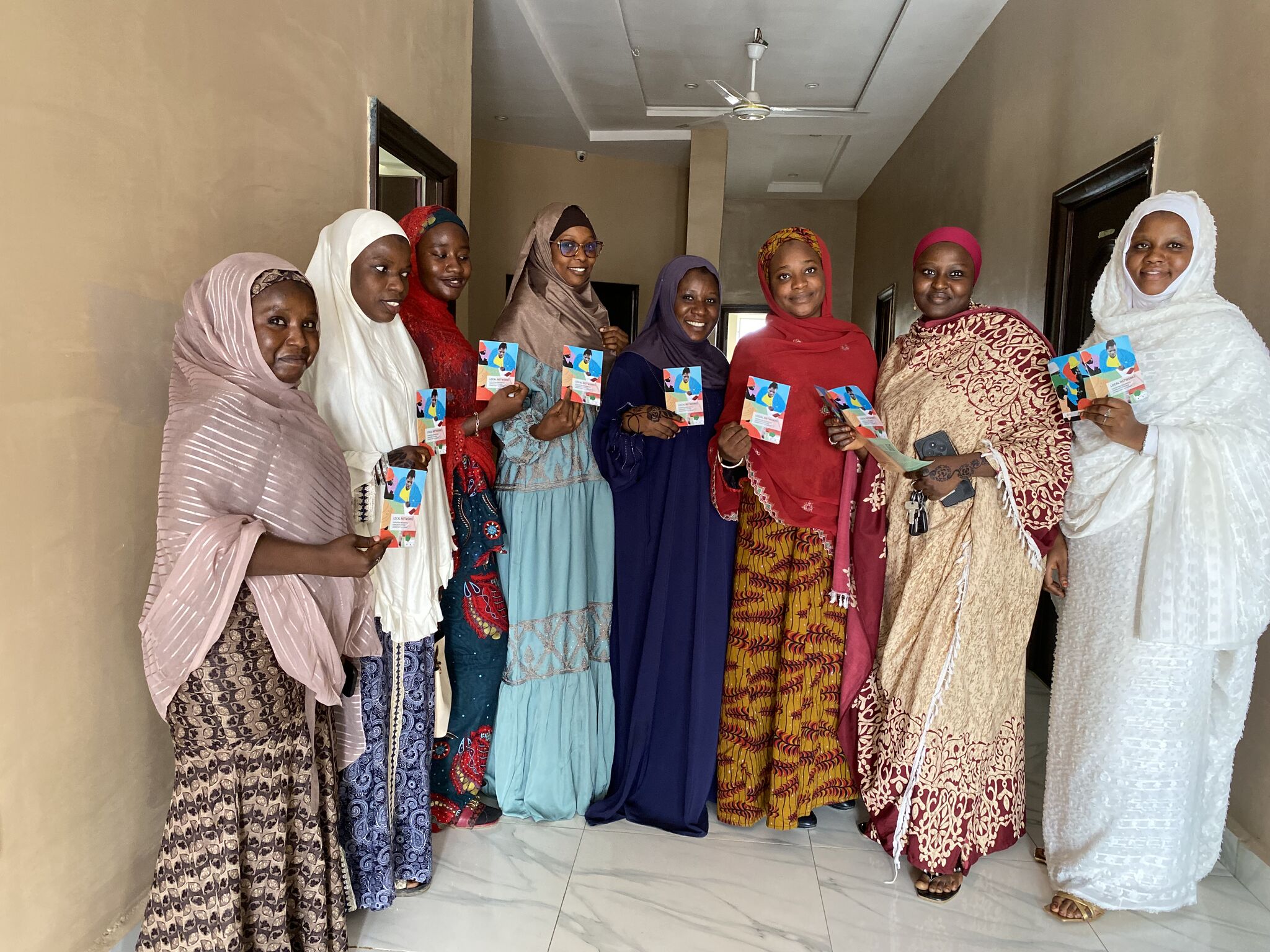
Over the past years, I have had the privilege of visiting communities and interacting with women across Nigerian states. During my most recent visit, between July and August this year, I toured Bauchi, Abuja, Lagos, Kano, Port Harcourt and Kaduna, where women are rewriting what connectivity means in their lives. Sitting with them in the community ICT hub, under the Trees and Learning Circle, I have seen how access to technology can become more than a technical matter; it can become a bridge to confidence, agency and solidarity.
Across Nigeria, vital connectivity has become essential for participation in society. Yet millions of women, girls and people living with special needs remain disconnected, not only from the internet but from the opportunities it brings to their livelihoods. However, community-centred connectivity initiatives are changing that narrative. They are built on the idea that connectivity should not be imposed on communities, but rather be developed by the communities themselves. Now, local people have been exposed to the concept of designing, building and managing their own networks, making them affordable, relevant and governed from within.
As we mark this year's 16 Days of Activism against Gender-Based Violence, I find myself reflecting on how gender justice and digital justice are deeply intertwined. How can we ensure that our expanding digital landscape uplifts women and girls, instead of reinforcing old inequalities?

Jama’are local government of Bauchi State
Women at the heart of community connectivity
In every community I have visited, women are proving that they are not just beneficiaries of technology but changemakers who are driving it. I have seen women managing local hubs alongside men, leading digital literacy sessions and training others to use digital tools safely and confidently.
One encounter that stayed with me was in communities in northern Nigeria, where a group of young women were trained to manage local connectivity infrastructure. They narrate that, when they first joined, many of them saw technology as distant, even intimidating, but as the sessions went on, their confidence grew. By the time I returned during my national tour, one of them was mentoring others in the community.
For me, moments like this remind me that when women are involved in every stage of a digital project – from design to deployment – the results are more inclusive and sustainable. It shows that networks managed or co-led by women tend to better reflect community needs, prioritise safety, and support wider participation. And digital empowerment in this sense will become a pathway to social empowerment.

Dakwa, a rural community on the outskirts of the Federal Capital Territory (FCT)
Barriers that still hold women back
Still, the gender digital divides remain a stubborn reality. In rural areas especially, women are often the last to gain access to devices and the first to drop out of training opportunities due to household or cultural responsibilities. Many face mobility restrictions or cannot afford devices and data.
In one session I had with the women, a participant quietly shared that she wanted to keep learning but feared criticism from her community. I have heard similar concerns echoed in different regions, most especially in deep rural communities. To me, this is a reminder that the barriers women face are not only technical, but also economic.
Safety is another pressing issue. Online harassment, privacy violations and misinformation all discourage women from expressing themselves freely online. As I have come to realise, connectivity without inclusion is not progress. Building a gender-aware digital ecosystem means intentionally addressing these barriers, ensuring that every community network we support is designed with women's reality in mind. These stories reveal how social norms, affordability and safety continue to shape women's digital realities.
The 16 Days of Activism against Gender-Based Violence is also a reminder that violence takes many forms, which can be physical, psychological, and increasingly, digital. Today, online gender-based violence (OGBV) is one of the biggest barriers to women's participation in digital spaces.
From cyberbullying and image-based abuse to misinformation that targets women, these forms of violence silence voices and limit opportunities. Too many women retreat from online engagement to protect themselves, losing access to vital platforms for learning, networking and advocacy.
That is why the struggle for gender equality/equity must now include digital inclusion and safety as core priorities. When we make digital spaces safer, more affordable, and more representative, we expand the boundaries of women's freedom. As activists, facilitators and partners, we must challenge ourselves to go beyond access but to create a system where women connect safely, confidently and creatively.
What a gender-responsive, community-centred connectivity initiative looks like
From my work as the gender coordinator at CITAD, I have learned that gender inclusion does not happen by accident. It requires deliberate choices at every stage that include planning, facilitation and governance.
A gender responsive community connectivity initiative should, among others, keep these in mind:
- Women must be part of defining community needs, choosing technologies and deciding what success looks like.
- Training schedules must consider women's responsibilities, mobility and safety.
- Both physical and digital environments should be free from intimidation and/or harassment.
- Women should not only attend training but also facilitate, manage and make technical decisions. Their visibility challenges stereotypes and builds new norms.
- When women tell their stories through podcasts, blogs, or community data projects, they shape how their communities are represented online.
Through these practices, community networks become not only a channel of connectivity but also a space of belonging, confidence and justice.

Women’s Circle in Kano
Personal reflection and learnings
This journey has been deeply enriching to me as I have learned that each community approaches challenges differently, influenced by its culture, tradition and local realities. Understanding these nuances has helped me facilitate more effectively and engage communities beyond my immediate environment.
I have also gained a deeper appreciation for Nigeria's diverse cultures, values, resilience and creativity. This awareness has strengthened my ability to communicate across differences, mediate conflicts and support communities in finding practical, local and relevant solutions.
Most importantly, I have learned that trust is the foundation of connectivity.
Looking ahead, my commitment as part of the CITAD and the Local Networks Initiative is to continue mentoring women leaders, integrating gender perspectives into trainings, advocating for inclusive policies and supporting women to actualise their dreams with regard to connectivity and community networks. When women in the communities feel heard and respected, they are more open to collaboration. When women feel safe and valued, they step forward to lead. These are the quiet transformations that often go unseen, yet they define the true impact of our work.
Connectivity as a pathway to equity and equality
Connectivity is not just about cable and bandwidth: it is about opportunity, participation and visibility. When women are connected, the community will grow strong, but when they are excluded, everyone tends to lose.
The experience I have had through the community-centred connectivity initiatives has shown me that community ownership, seen through a gender lens, can reshape our digital landscape. This initiative offers a model for how technology can serve justice, equity and local empowerment.
The promise of community connectivity will only be fulfilled when gender equality and equity are not an afterthought but its foundation. Let us continue to build networks that are both digital and human that can connect us all fairly, safely and fully.
Harira Wakili is a gender and digital rights advocate, dedicated to promoting digital inclusion and literacy. She serves as national gender coordinator for the Local Networks Initiative (LocNet) with the Centre for Information Technology and Development (CITAD).